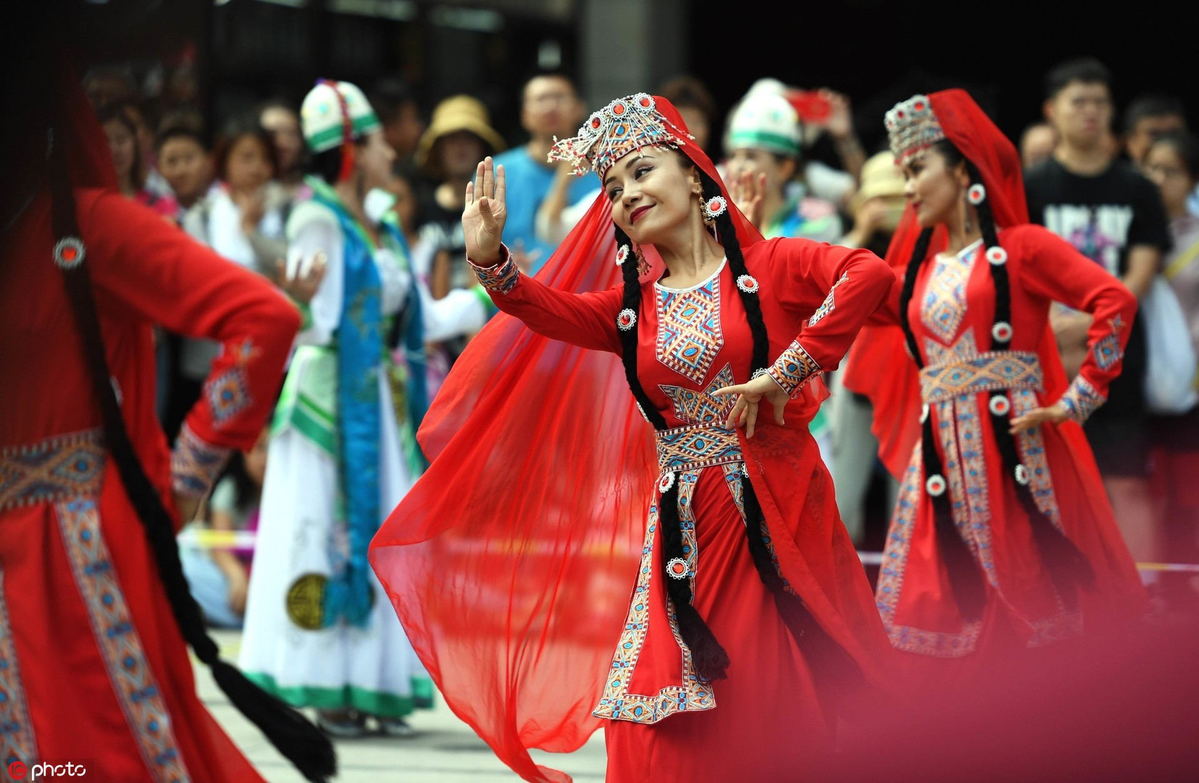West's smearing of Xinjiang policy hypocritical
By Xu Jianying | China Daily | Updated: 2019-10-14 07:11

The Xinjiang Uygur autonomous region in the northwest of China borders eight countries in Central and South Asia, some of which are deeply troubled by terrorism and violent extremism. As a result, extremism infiltrated Xinjiang after reform and opening-up and the three evil forces of terrorism, separatism and religious extremism have assembled centered on the East Turkestan Islamic Movement, seeking to spread extremism, exert mind control on certain groups and interfere with normal State management in a bid to split Xinjiang and establish caesaropapism. Thousands of violent terrorist attacks were carried out to this end, killing and injuring a huge number of people and inflicting immeasurable losses.
Confronted with the rise of terrorism and extremism, the Chinese government has introduced a series of innovative deradicalization measures in Xinjiang which take into account both China's reality and international experience, and emphasize both targeted strikes and preemptive action. For instance, vocational skills training centers have been established to help the large number of people in South Xinjiang free themselves of the influence of extremism. Meanwhile large-scale poverty alleviation programs have been implemented to reduce poverty and wipe out the conditions conducive to the spread of extremism. Border controls have been strengthened to resist infiltration. That Xinjiang has not seen a single terrorist attack in the past three years and people of all ethnic groups largely enjoy a peaceful life and improved livelihoods speaks volumes to the effectiveness of these measures.
But some Western countries accuse China of trampling on the human rights of Uygurs and other Muslim groups to bluntly interfere in China's internal affairs regardless of all the obvious and positive results China has attained with its anti-extremism efforts. Some people with ulterior motives even claim that China's anti-terrorism campaign specifically targets Uygurs and other Muslim groups. Publicly or covertly, they support the East Turkestan Islamic Movement and agitate for Islamic states to oppose China. It is shocking that these countries have politicized human rights issues to such an extent that they don't hesitate for a second to use them to interfere in another country's internal affairs.
What have these "righteous" countries done to "safeguard" human rights? We need not look way back into history to see that their deeds do not match their words. The wars that the West has declared in the name of fighting terrorism, be it the war in Afghanistan, Iraq or Syria, have seriously violated the human rights of local people, not to mention brought long-term chaos to these countries allowing terrorism and extremism to flourish.
Where were the religious rights and freedom they claim to uphold when they bombarded mosques in these countries and turned religious sites into battlefields? These Western countries have never reflected upon their own violation of local people's rights to life, religion and culture, neither are other countries allowed to criticize them. They never tolerate any opposing views and turn a deaf ear to the human rights crisis they have inflicted on innocent civilians. All they care about is whether other countries fall in line and support their policy. As all can see, some Western countries rely heavily on this double standard in human rights to interfere in other countries' internal affairs. This is now the case with Xinjiang.
The double standard of these Western countries, which are mired in Cold War mentality, mirrors their ideological prejudice against China-a socialist enemy. Yet the UN Convention has long stated that terrorism in all forms and scale and all terrorists should be punished and the human rights of terrorists be reduced. It is a matter of course for China to abide by relevant UN rules and devise anti-terrorism and anti-extremism policies based on State laws and the country's reality.
To fully fulfill human rights is the common aspiration of the people of all countries. But the path each country has chosen to realize them is distinctive as people's understanding and interpretation of human rights greatly vary due to differences in history, culture and customs. The challenges of countering terrorism and extremism confronting each country also differ significantly. It is wise and necessary to design localized deradicalization policies. The key always lies in effectively containing the spread of terrorism and extremism and safeguarding the lives and livelihoods of the majority of citizens and social stability.
Thus it is obviously unreasonable for Some Western countries to try to proclaim the universality of their understanding of human rights irrespective of those of other countries. It is even more hypocritical for them to politicize human rights to fulfill their agenda and interfere in the internal affairs of other countries. Similar dishonorable deeds have wreaked havoc in countries around the world.
Entering the 21st century, a united front to fight terrorism has formed across the world. China is not only participating in the global fight against terror and it has also achieved notable results thanks to its innovative measures. Which are recognized and being made an example by a large number of developing countries. As China's and the world's war on terrorism push ahead, and more results ensue, Western countries' smearing of China's Xinjiang policy is doomed to fail.
The author is a research fellow at the Chinese Academy of Social Sciences. The views don't necessarily represent those of China Daily.
























